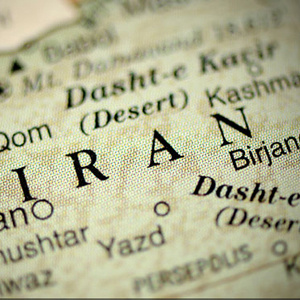The Week in Iran

Aware of threats laying on the way -and how the Purposeful Subsidies Bill can turn into a lever by the opposition- the Iranian president has warned profiteers about any obstructions to the plan, and his media arms have coined the term ‘economic Fetneh’ to link any objections to the plan to the political unrest ensuing from the presidential election of 2009. Regardless of this rhetoric many believe –even though they may be loath to confess- that Ahmadinejad is the only president daring enough to implement this plan; the best example for a ‘third rail’ plan in Iran’s political context.
Last week, the dispute between pros and cons continued over the abrupt closure of the Iran School of Medical Sciences and its integration into the two other main medical schools of Iran Shahid Beheshti University and Tehran University- by the order of the Minister of Health, Marzieh Vahid-Dastjerdi (who is also the first female minister after the Revolution). The medical school’s students carried on protests in front of their university and called for a reversal of the decision. Meanwhile, the Minister of Health released a statement in which it promised to guarantee the academic future of the medical students. In Majles, the parliament, two former ministers of health, Ali-Reza Marandi from Hashemi Rafsanjani’s administration and Masoud Pezeshkian who served in Khatami’s cabinet, condemned the restructuring: Marandi for the haste made by the minister and Pezeshkian for the flawed rationale supporting the decision (downsizing a public organization). Proponent MPs believe that the merger will contribute to a giant leap in the academic status of Iranian medical universities in global rankings. A rift is also seen inside the university: while some professors have complained to the Article 90 Committee of the parliament, 144 of their colleagues have sent a letter of appreciation to the president for his decision.
Iran’s nuclear program has been the faithful companion of Iranian newspapers since 2003. Iran and the P5+1 spent the week haggling over the date and location of the next nuclear talks. While Iran preferred to sit at a table in Istanbul, the P5+1 insisted that the negotiations be held either in Austria, where the IAEA headquarters is located, or in Switzerland. Last week, Ali-Asghar Soltanieh, Iran’s representative to IAEA, also criticized Yukia Amano’s critical remarks on Iran’s nuclear program.
Fetneh (or sedition) is another fixture of Iranian newspapers. On Monday, in a speech to the armed forces staff, Minister of Intelligence Heydar Moslehi stated that the financial supporting network and headquarters of the Fetneh movement have been identified. He also claimed that subversive moves against the country and the Islamic Revolution began in the early years of the Revolution, occasionally linked to illegal economic activities such as land usurpation. On Friday, Tehran’s Friday prayers leader Ayatollah Ahmad Jannati underscored in his sermon that the Fetneh is not over, and that the ‘enemy’ and leaders of last year’s subversive movement are still active. He also added that some of the convicted in last year’s unrest flee the country during prison leave and resume their plans overseas. Jannati, the octogenarian head of the Guardian Council, implicitly demanded the prosecution of Mahdi Hashemi, son of Akbar Hashemi Rafsanjani -a backstage supporter of Mir Hossein Mousavi in the 2009 presidential elections- who is accused of illegally funding Mousavi’s campaign and masterminding the post-election unrest. Meanwhile, a final verdict was issued for four reformist activists, Emad-od-Din Baghee, civil activist, Badr-os-Sadat Mofidi and Ahmad Zeidabadi, journalists, and Abbas Abutalebi, Deputy Head of Mir Hossein Mousavi’s electoral headquarters in Tehran.
The Caspian Sea legal regime was another hot topic of the week. Once sharing the world’s largest lake jointly with the USSR, Iran has been struggling to keep its share of the Caspian in a legal and diplomatic battle with four constituent republics of the former Soviet Union, namely Azerbaijan, Turkmenistan, Kazakhstan and Federation of Russia, who are trying to demarcate their share of the sea and its lucrative resources in a way that leaves Iran with merely a 11% share. Ramin Mehmanparast, foreign ministry spokesman, repeated Iran’s official stance on Iran’s minimum 20 percent share and declared that Iran’s representative in the Caspian Sea legal regime working group will not agree with any proposals which do not guarantee the maximum interests of Iran.
The hottest rumor in Majles was speaker Ali Larijani’s invitation to former British FM Jack Straw to visit Iran; a rumor that made Larijani the target of attacks by the pro-Ahmadinejad media for a few days. The rumor was rejected by Larijani’s Principlist supporters in the parliament who called it a “British ruse”. Some interpreted spreading the hearsay as a last-ditch offensive by anti-Larijani figures to undermine his position a few days before an election inside the Principlist Fraction of the parliament. If so, the efforts failed to deprive Larijani of his leadership position, as he was reelected with 44 votes from a total 47.

